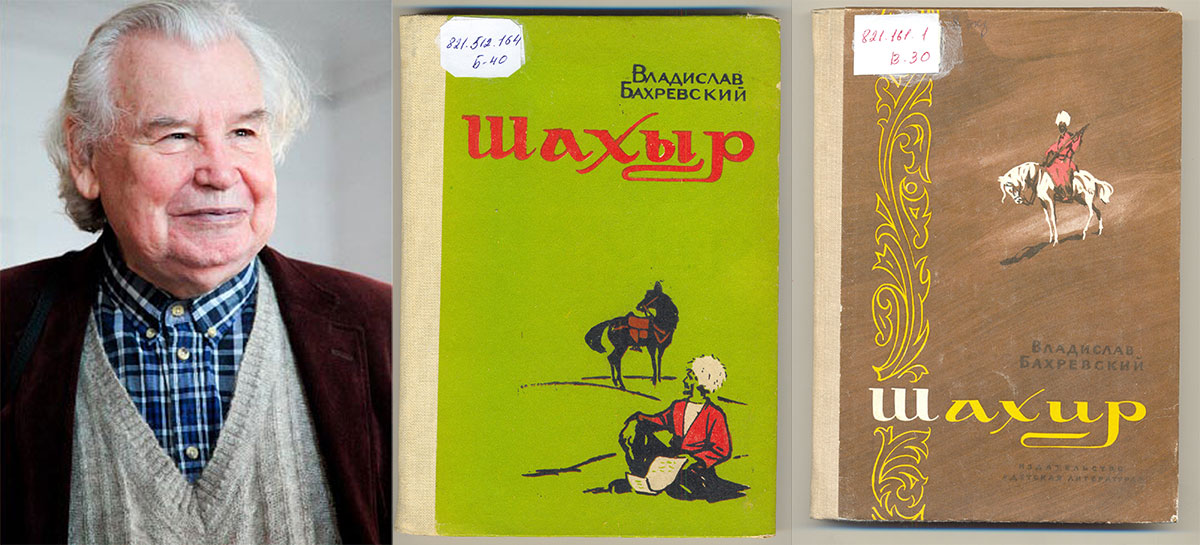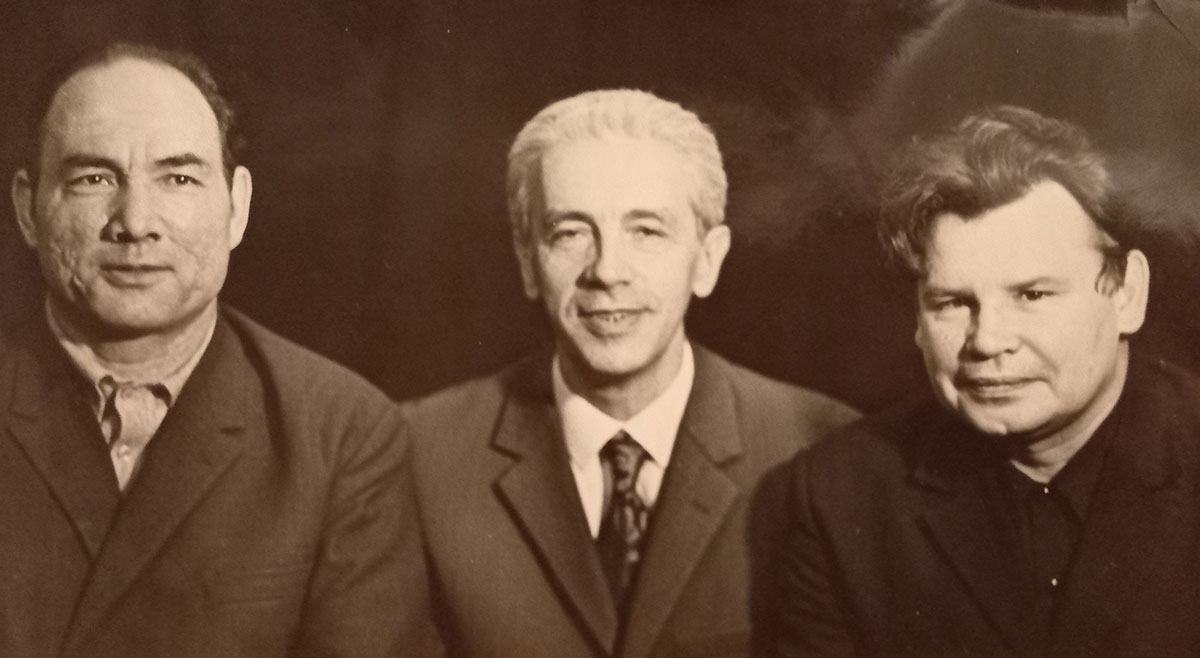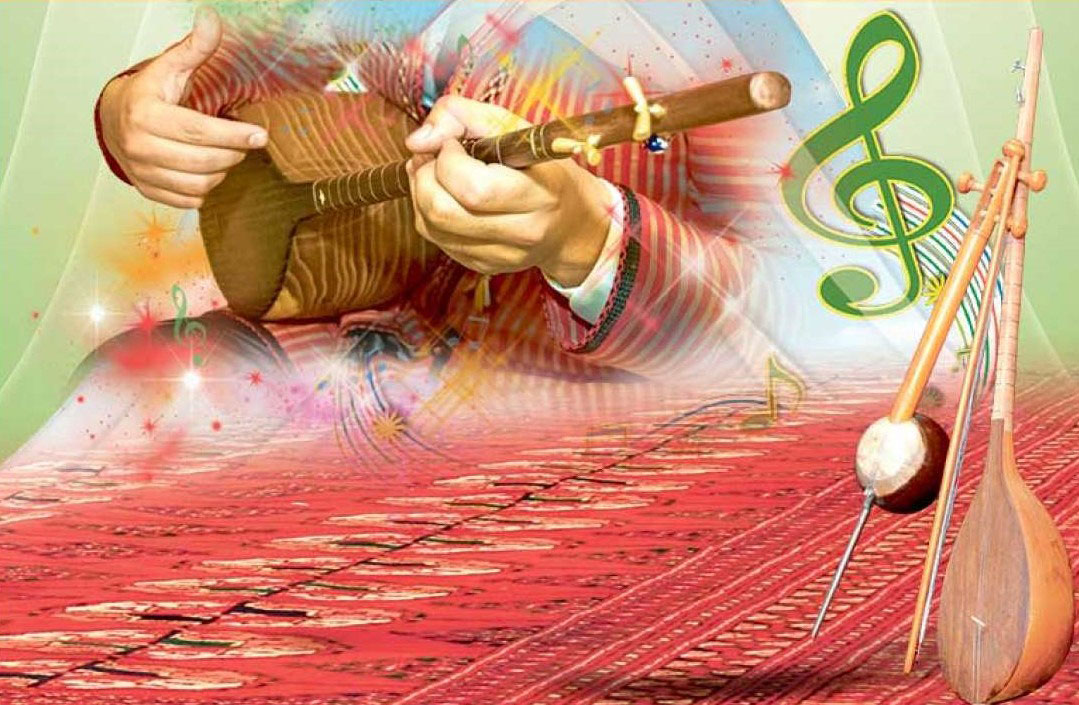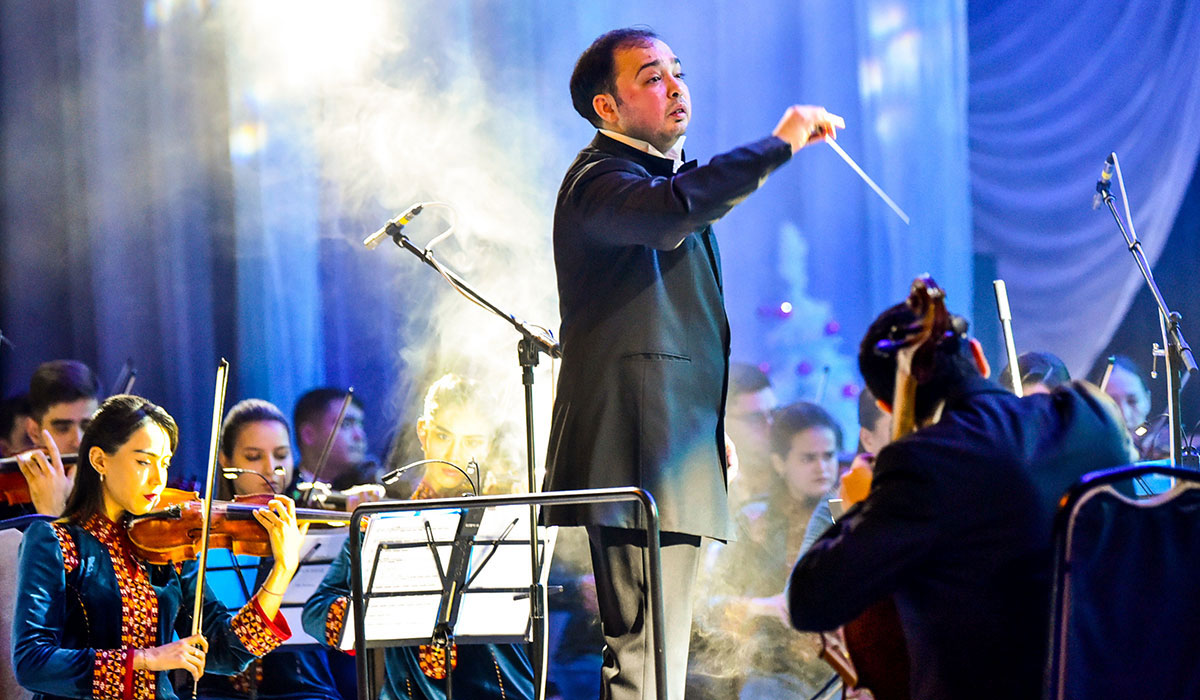The name of Vladislav Anatolyevich Bakhrevsky, a member of the Writers' Union of Russia, who was awarded the Pushkin Prize for his contribution to the development of Russian literature, is well known to the readers of our country. As the author of a number of historical novels and books for children, as well as a translator, he managed to win the sympathy of numerous readers of different ages. He is also known for the fact that he connected his life and work with sunny Turkmenistan.
To tell in more detail about this writer, we sent an e-mail to the address of his son, Leonid Bakhrevsky. Leonid Vladislavovich was delighted to receive a letter from us and immediately put us in touch with his father. A day or two later, we received a letter from Vladislav Bakhrevsky himself.
Vladislav Anatolyevich last year celebrated his 85th birthday with family and friends. Despite his advanced age, he is still young at heart and attracts interlocutors.

In the middle of the 70s of the last century, on the instructions of the editorial board of the "Children's Literature" publishing house, he came to Turkmenistan. The purpose of his trip is to assist his Turkmen colleagues in creating works of children's literature, as well as in translating Turkmen folk tales into Russian. Accompanied everywhere by Turkmen hospitality, he traveled almost all over Turkmenistan. In addition to meetings with writers and poets, he met interesting interlocutors from among the true admirers of literature. It was from them that he heard the story about the great poet Makhtumkuli Fraghi. These stories aroused a great desire to get acquainted with the work of the classic of Turkmen literature. To better imagine what Makhtumkuli Fraghi was like, he visited his homeland - the village of Gerkez. Communication with the old residents of these places and close relatives of the poet inspired him to write a story about Makhtumkuli.
Vladislav Bakhrevsky tells the story of the appearance of this story:
- The people cherish many legends about Makhtumkuli's father Dovletmammed Azadi, about Magtymguly Yonacha's grandfather, about the shahir's love, about his travels with Nuri Kazym, about studying at the Shirgazy Khan madrasah. In addition, the most important source of Makhtumkuli's biography is his poetry.
Returning to Moscow, he pondered for a long time where to start. He seemed to have enough information about Makhtumkuli. He managed to carefully study the collection of the poet's poems, which was translated by the famous poet and translator Arseny Tarkovsky. It wasn't until 1977 that he took up the pen. After a long creative search in 1980 in the publishing house "Children's Literature" his story "Shahir" was published. This was the first Russian-language literary work dedicated to the great Makhtumkuli Fraghi. From that moment on, the book about the Turkmen poet became the most popular work among admirers of his work. The story "Shahir" consists of such chapters as "Azad", "Mengli", "Journey for Truth", "I was a song for the homeland." All these chapters clearly reflect the life and work of the great poet. Therefore, it became a favorite book of Russian-speaking readers of those years.
In 1981, the story "Shakhyr" was published in the publishing house "Magaryf" in the Turkmen language. It should be noted that it was translated into Turkmen by Vladislav Anatolyevich's best friends - Kayum Tanrykulyev and Nury Bayramov. A little more than forty years have passed since then. But this story remains relevant to this day, since it reliably presents the classic of Turkmen literature with his personal tragic experiences and experiences about the fate of the Turkmen people.
At the end of our correspondence, Vladislav Anatolyevich did not hide his pride in the literary image of the great poet he created and thanked the Turkmen readers for their interest in his work.








